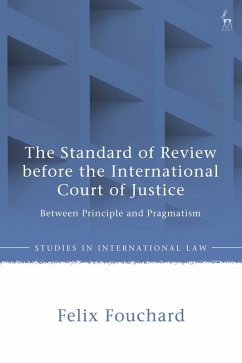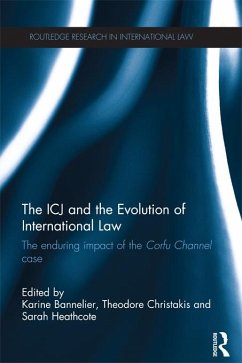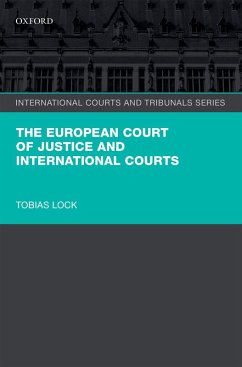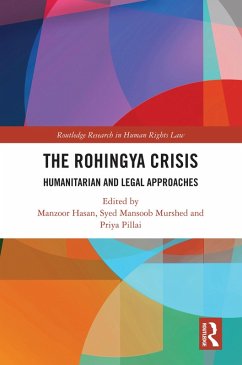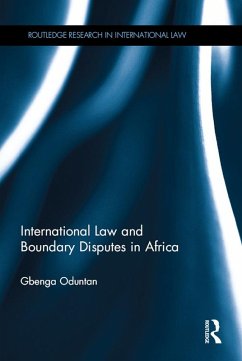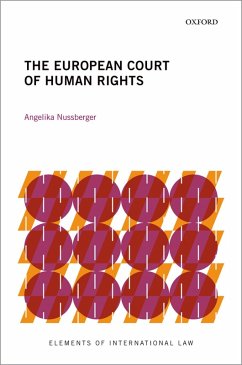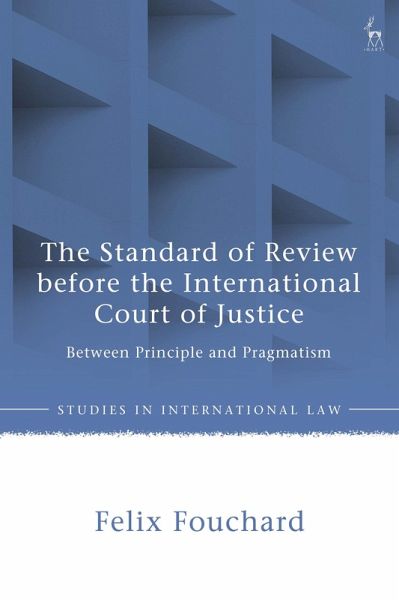
The Standard of Review before the International Court of Justice (eBook, PDF)
Between Principle and Pragmatism
Versandkostenfrei!
Sofort per Download lieferbar
70,95 €
inkl. MwSt.
Weitere Ausgaben:

PAYBACK Punkte
35 °P sammeln!
This book examines how the International Court of Justice (ICJ) reviews State behaviour through the prism of the standard of review. It develops a novel rationale to support the ICJ's application of deferential standards of review as a judicial avoidance technique, based on strategic considerations. It then goes on to empirically assess all 31 decisions of the Court in which the standard of review was at issue, showing how the Court determines that standard, and answering the question of whether it varies its review intensity strategically. As a result, the book's original contribution is two-...
This book examines how the International Court of Justice (ICJ) reviews State behaviour through the prism of the standard of review. It develops a novel rationale to support the ICJ's application of deferential standards of review as a judicial avoidance technique, based on strategic considerations. It then goes on to empirically assess all 31 decisions of the Court in which the standard of review was at issue, showing how the Court determines that standard, and answering the question of whether it varies its review intensity strategically. As a result, the book's original contribution is two-fold: establishing a new rationale for judicial deference (that can be applied to all international courts and tribunals); and providing the first comprehensive, empirical analysis of the ICJ's standards of review. It will be beneficial to all scholars of the Court and those interested in judicial strategy.




